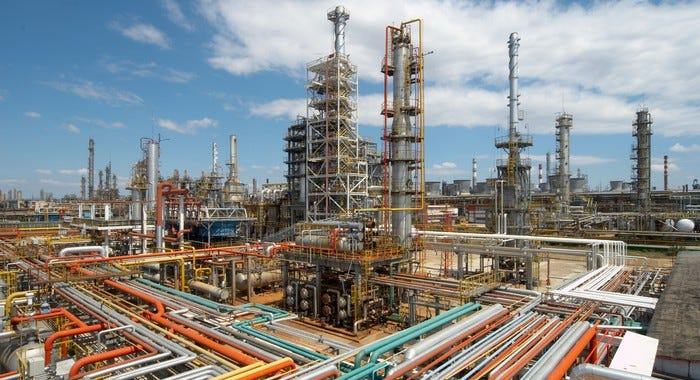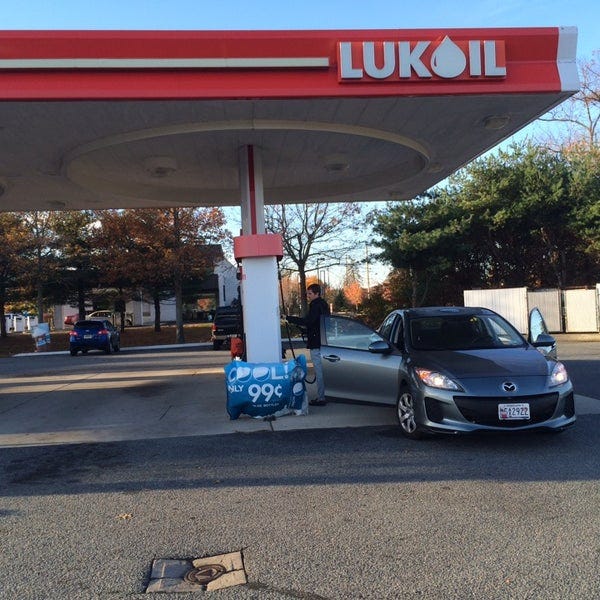Emerging Markets Daily - March 25
Commodities Boom Growing, Investors Dump EM Funds, Germany to Reduce Russian Energy Reliance, El Salvador's Bitcoin Bond, Turkey Buying Russian Oil in Liras?
The Top 5 Stories Shaping Emerging Markets from Global Media - March 25
This Commodities Boom Is About to Get Even Bigger
“In total 27 Commodities ranging from the metals, energies to soft commodities have tallied up astronomical double to triple digit gains already within the first quarter of 2022…. According to Goldman Sachs ‘we’re still only at the first inning of a multi-year, potentially decade-long Commodities Supercycle’.”
FX Empire
“Over the last month, Oil prices soared above $130 a barrel to hit their highest level in a decade. While Gold extended its parabolic rally from just under $1,800 an ounce to a high of $2,070 an ounce, just $5 short of an all-time high reached in August 2020.”
“The bullish momentum also split over into other commodities with Aluminium, Copper, Lithium Platinum, Palladium, Uranium, Zinc, Coffee, Wheat and Lumber prices blasting through all-time highs.”
“Elsewhere, Natural Gas prices have also gone ballistic. U.S Natural Gas prices have almost doubled this quarter and are on course for their strongest rally since 2009. Meanwhile, European Natural Gas prices have skyrocketing a whopping 90% to post their biggest monthly rise ever.”
“But the best performing commodity is Nickel. Nickel prices snatched the headlines this month with a blistering gain of over 250% in a single day to register the biggest one-day move ever seen in the history of the commodities markets.”
“In total 27 Commodities ranging from the metals, energies to soft commodities have tallied up astronomical double to triple digit gains already within the first quarter of 2022…. According to Goldman Sachs ‘we’re still only at the first inning of a multi-year, potentially decade-long Commodities Supercycle’.” Phil Carr writes.
Investors Dump EM Funds on Slowdown Worries
Reuters/Yahoo Finance
“Mutual funds that invest in emerging market (EM) equities and bonds have faced huge outflows over the past month, as the intensifying Russia-Ukraine crisis spawns fears over higher inflation and slower economic growth in these markets.”
“According to Refinitiv Lipper, a cumulative $8.1 billion has flowed out of EM equity funds and $5.73 billion from bond funds in the past four weeks. This is in contrast to last year's heavy inflows, when EM bond funds received $232 billion, while EM equity funds obtained $103.4 billion.”
“Emerging market nations are facing higher input costs as commodity prices soar due to an escalation in conflict between Russia and Ukraine. The two countries are leading exporters of a variety of commodities such as crude oil, gas, wheat and nickel.”
According to data from Oxford Economics, China, India and South Korea are the biggest importers of crude oil among emerging markets. TD Securities estimates that a 50% increase in the average oil price would result in Asia's oil trade deficit widening by $240 billion this year.”
“…China, Turkey, Poland and South Korea have the biggest trade exposure with Russia among EM countries, according to the data. Inflation has risen in many emerging market countries due to a surge in commodity costs, which has prompted some central banks to raise interest rates this year.” Reuters/Yahoo Finance reports.
Germany To End Dependence on Russian Gas by 2024 as US Steps Up Shipments
Financial Times
“Germany vowed to all but wean itself off Russian gas by mid-2024 as the US said it would aim to deliver at least 15bn cubic metres of additional liquefied natural gas to the EU this year along with other suppliers.”
“Berlin also said it aimed to become ‘virtually independent’ of Russian oil by the end of this year as part of announcements that promise to reshape the region’s energy market in an exceptionally short period of time.”
“They came as US president Joe Biden met Ursula von der Leyen, the EU Commission president, on Friday morning in Brussels on the second full day of his trip to Europe. The announcements from Germany’s economy minister Robert Habeck underlined how Europe’s largest economy is central to efforts to slash exposure to Russia and punish its president, Vladimir Putin, for the invasion of Ukraine despite worries about the knock-on effects on consumers.”
“Habeck said the country can be ‘independent of Russian gas by all but a small portion’ by as early as the summer of 2024. A ministry document said it was possible to reduce Russian gas to only 10 per cent of consumption by that time.”
“…Since Russia’s invasion of Ukraine, Habeck said the government has reduced its dependency on Russian coal imports from 50 to 25 per cent, on oil imports from 35 to 25 per cent, and on gas from 55 to 40 per cent.” The Financial Times reports.
El Salvador Postpones Bitcoin Bond
Coin Desk
“El Salvador has postponed its planned $1 billion bitcoin bond offering because of unfavorable market conditions, Finance Minister Alejandro Zelaya said on Tuesday.”
“The offering was initially scheduled to take place between March 15-20, but the Russia-Ukraine war and the war's impact on the price of bitcoin caused the government to change the date, according to Reuters.”
“…According to Zelaya, the bitcoin bond will have a ‘substantial oversubscription’ that could reach $1.5 billion. President Nayib Bukele announced plans in November to build a ‘Bitcoin City’ funded by the sale of the bonds, which have an annual coupon of 6.5%. Half the funds will be used to accumulate bitcoin (BTC), with the rest earmarked for infrastructure and bitcoin mining powered by geothermal energy.” Coin Desk reports.
Russia To Consider Payment from Turkey in Lira, Bitcoin or Gold for Oil Sales
Daily Sabah
“Russia is considering accepting ruble or Turkish lira as payment for its oil and gas exports, an official said Thursday.”
“Russian lawmaker Pavel Zavalny, head of the energy committee at the Duma, said that when it comes to ‘friendly countries’ such as Turkey and China, Russia is willing to be more flexible with payment options.”
“He said that Moscow is open to accepting different currencies for its exports, beginning with natural gas, depending on the buyer’s preferred method of payment. ‘With Turkey, it can be lira and rubles. So, there can be a variety of currencies, and that’s a standard practice. If they want bitcoin, we will trade in bitcoin.’”
“The latest moves to conduct the trade in national currencies are part of the steps being taken to shore up the rapidly declining ruble. During Russian Energy Week last year, Putin said that while he believed bitcoin has value, "I don't believe it can be used in the oil trade." Daily Sabah reports.
“Every man has his folly, but the greatest folly of all … is not to have one.”
― Nikos Kazantzakis, Zorba the Greek




